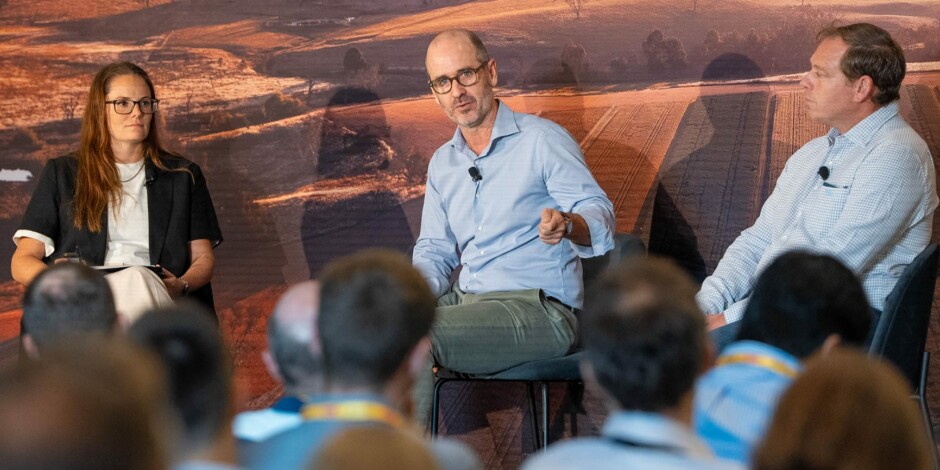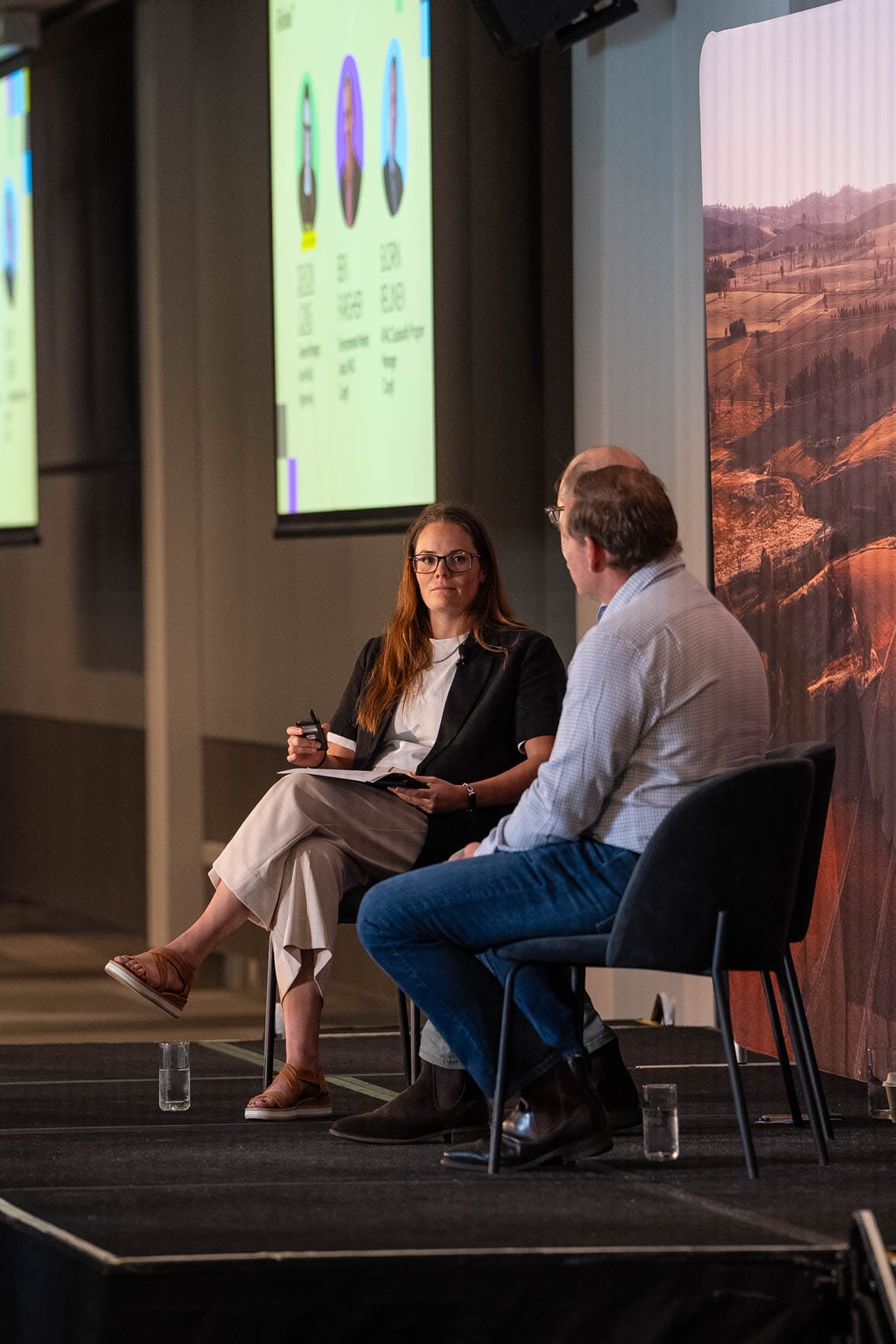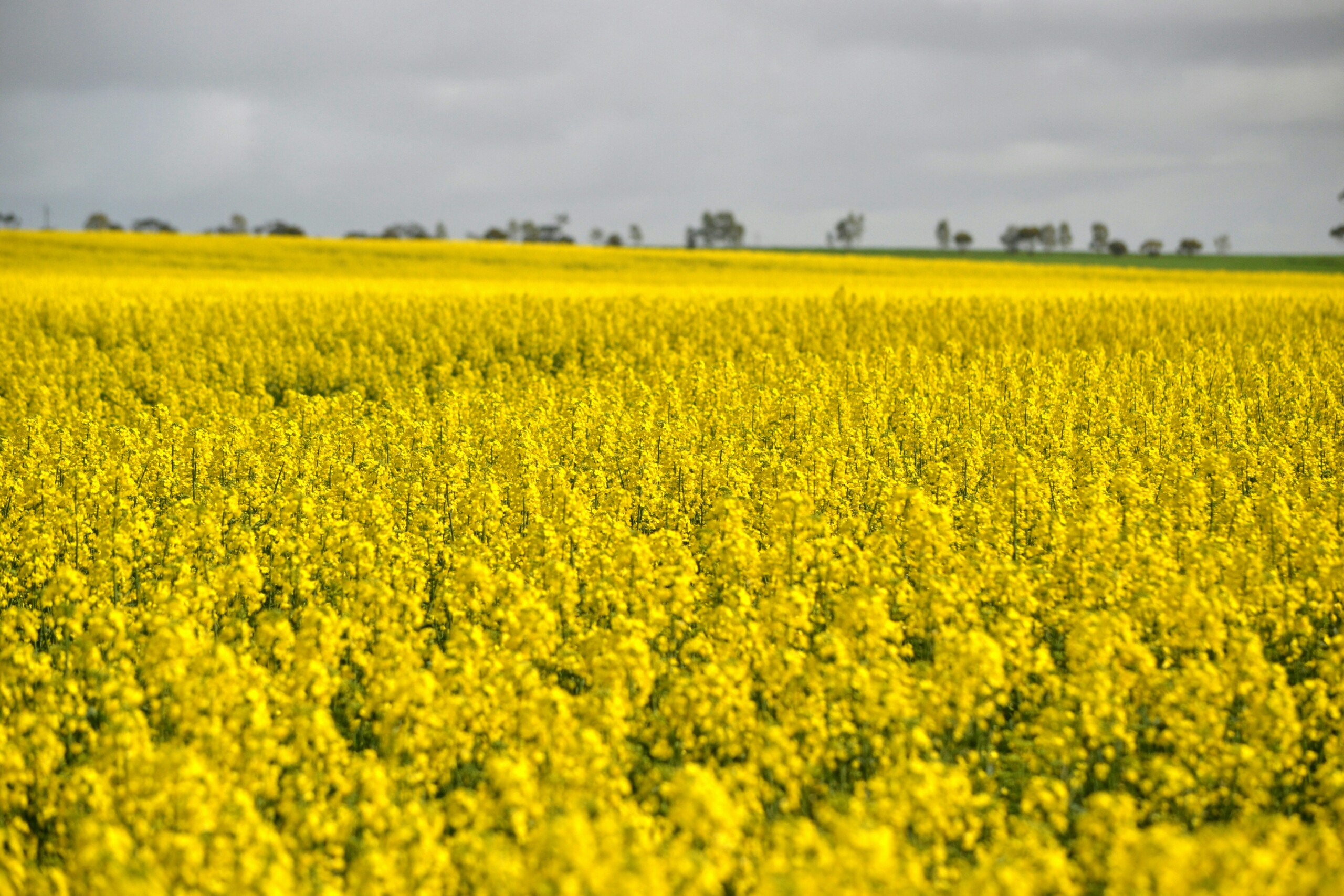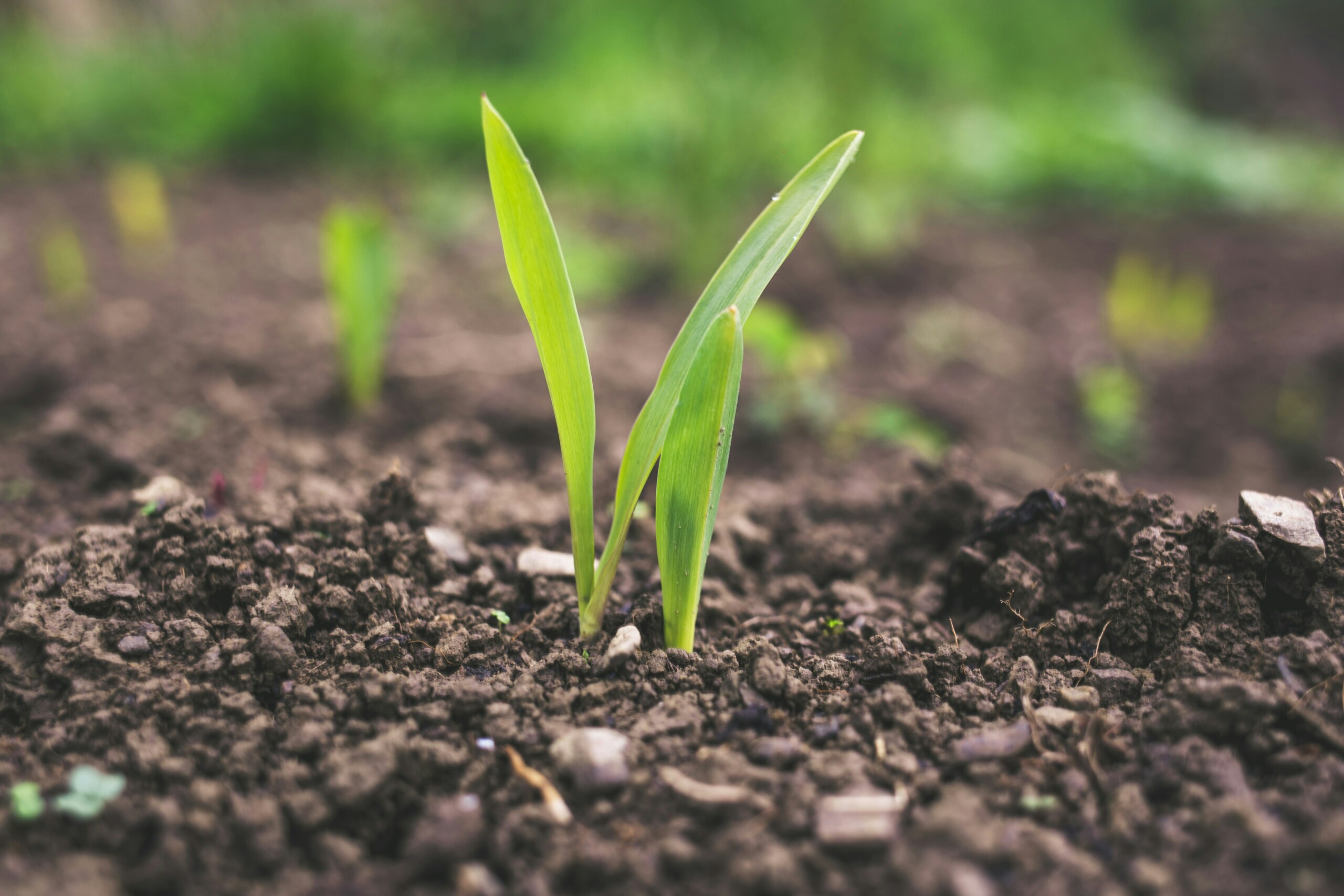How canola is leading the charge on Scope 3 decarbonisation in the Australian cropping sector
On paper, decarbonisation programs to reduce scope 3 emissions on-farm sound like the best option for our producers, our industry and our planet; but what do they look like in practice? The team from Cargill share how its partnership with Regrow Ag is supporting Australian canola farmers.

SustainConnect giving growers new revenue options and flexibility
One program leading the charge in decarbonising the canola supply chain is Cargill SustainConnect.
The key motivations behind the program, according to Ben Fargher, Environmental Markets Lead, APAC, Cargill, is Cargill’s commitment to meeting its corporate sustainability goals and creating value for its growers and end-use customers.
“End-use customers look to Cargill for support in achieving their sustainability objectives, while grower customers seek recognition for their efforts in sustainable farming practices,” he said.
For growers, SustainConnect offers a compelling value proposition centred on flexibility, certainty, and opportunity, according to Bjorn Reijnen, APAC Sustainability Program Manager, Cargill.
“The program provides growers with a fixed price payment per hectare, offering financial alternatives and flexibility in decision-making,” he said.

Devon Long, General Manager, Asia Pacific, Regrow Ag; Ben Fargher, Environmental Markets Lead, APAC, Cargilll; and Bjorn Reijnen, APAC Sustainability Program Manager, Cargill were part of panel discussion ‘Scope 3 in action: On-farm emissions reduction for Australian cropping businesses’ at evokeAG. 2024. Image | Mr.Wigley Photography.
Importantly, growers are not required to sell their grain exclusively to Cargill, preserving competitiveness in the market.
The program operates as a strategic initiative aimed at decarbonising the canola supply chain while fostering collaboration between growers, farmer customers, and end-use customers.
RELATED: Five surprising similarities between agriculture and mining
Cargill has partnered with Regrow to measure, report and verify (MRV) carbon outcomes using remote sensing, in-field data, and crop and soil health modelling.
Regrow’s Agricultural Resilience platform lends simple enrolment and secure data collection and gives growers and Cargill’s demand customers transparent verification and measurements options.
How does the Cargill and Regrow partnership work in five simple steps?
- Cargill helps growers put their chosen interventions into place and share data from their activities.
- Growers get a guaranteed $25/Ha, subject to practices being implemented in line with the one-year agreement.
- Regrow validates the interventions.
- Growers are paid for the interventions and access to sustainable supply chains, while opening opportunities for Cargill customers who depend on agricultural supply chains to hit their sustainability targets.
- The program is currently available to Australian canola farmers in South Australia, Victoria, Queensland and New South Wales. Sights are set on expanding to Western Australia, and the first barley pilots are underway.
Canola today, other commodities tomorrow
SustainConnect is unlike certification schemes and carbon offset initiatives. It functions as a structured pathway for growers to enhance sustainability within their operations beginning with a baseline assessment aligned with industry standards, enabling growers to benchmark their current practices.

While SustainConnect currently focuses on canola, there are plans for future expansion into other commodities.
From there, a range of interventions is offered, akin to a decarbonisation menu, allowing growers to select interventions suitable for their farms.
The interventions encompass various practices such as reduced tillage, cover cropping, stubble retention, and optimised nutrient management, among others, all carefully selected to align with Australian farming conditions and address specific sustainability goals.
RELATED: Sober, yet hopeful reflections on agrifood tech funding for 2024 and beyond
Importantly, the program is not a standalone initiative but rather integrates growers into the broader supply chain, connecting them with end-use customers. This linkage ensures transparency and accountability throughout the value chain, with measurable outcomes verified through rigorous measurement and verification processes.
While SustainConnect currently focuses on canola, there are plans for future expansion into other commodities. By empowering growers to participate in sustainable practices while maintaining profitability, SustainConnect embodies a collaborative effort towards a more resilient and environmentally conscious agricultural industry.
“Ultimately, if we want the cropping industry and our country to hit our net zero targets, we need more Scope 3* decarbonisation initiatives and we need massive grower participation,” Devon Long, General Manager Asia Pacific, Regrow Ag.

Emissions reduction in Australian cropping businesses requires a multifaceted approach, with Scope 3 decarbonisation programs playing a central role.
According to Devon, most food and fashion brands, particularly those driving Australian agricultural exports, have Scope 3 targets, with over 90% of their emissions falling within this category.
Addressing on-farm agricultural activities becomes imperative as companies set ambitious goals for net zero emissions by 2050.
Multifaceted approach key to sustainable cropping future
By addressing Scope 3 emissions, organisations can enhance their overall sustainability performance, reduce their environmental footprint, and contribute to global efforts to mitigate climate change.
Scope 3 decarbonisation initiatives can create value for businesses by improving resource efficiency, enhancing brand reputation, and meeting the evolving expectations of customers, investors, and other stakeholders.
RELATED: Growing opportunities for natural capital: A new frontier for Australia’s agrifood sector
This is where decarbonisation programs that retain emissions reductions within the supply chain offer a practical pathway to achieve sustainability objectives.
It’s also important to distinguish decarbonisation programs themselves from traditional carbon credits, Ben Fargher, Environmental Markets Lead, APAC, Cargill, explained.
“Decarbonisation programs differ from traditional carbon credits in that they keep emissions reductions within the supply chain, allowing all participants to claim them.
Emissions reduction in Australian cropping businesses requires a multifaceted approach, with Scope 3 decarbonisation programs playing a central role.
By fostering collaboration between stakeholders and promoting sustainable practices, initiatives like SustainConnect pave the way for a more sustainable and resilient future in cropping.
Ben Fargher, Environmental Markets Lead, APAC, Cargilll; Bjorn Reijnen, APAC Sustainability Program Manager, Cargill; and Devon Long, General Manager, Asia Pacific, Regrow Ag, were part of panel discussion ‘Scope 3 in action: On-farm emissions reduction for Australian cropping businesses’ at evokeAG. 2024. Regrow was a Strategic Partner at AgriFutures evokeAG. 2024 in Perth, Western Australia.
Tap into more discussions here about the role of agrifood tech in driving sustainability across supply chains, news from agritech startups and updates ahead of evokeAG. 2025 in Brisbane, Queensland.
* Scope 3 emissions: Scope 3 decarbonisation refers to efforts aimed at reducing greenhouse gas emissions associated with the entire value chain of a product or service, including both upstream and downstream activities. It’s complex.
In the context of agriculture, Scope 3 emissions typically encompass emissions generated from activities such as the production of inputs (e.g., fertilisers, pesticides), on-farm activities (e.g., tillage, fuel usage), transportation, processing, distribution, and end-use of agricultural products.
Unlike Scope 1 and Scope 2 emissions, which are directly controlled or influenced by an organisation, Scope 3 emissions are often indirect and extend beyond the boundaries of a company’s operations. Therefore, addressing Scope 3 emissions requires collaboration and coordination along the entire supply chain, involving suppliers, customers, and other stakeholders.
Regrow Ag powers Agriculture Resilience for today’s leading retailers, CPGs, processors, and farmers. Named one of the TIME100 Most Influential Companies of 2023, Regrow’s rapidly growing list of partners includes Cargill, General Mills, and Kellogg’s. With Regrow’s Agriculture Resilience Platform, companies across the ag supply chain gain the ability to assure their supply chains by accelerating the needed scale of GHG emissions reduction, adoption of regenerative farming practices, and proactive adaptation to the changing climate. A World Economic Forum Innovator and member of the World Business Council for Sustainable Development, Regrow has been named the No. 1 Most Innovative Company in Agriculture on Fast Company’s list of the World’s 50 Most Innovative Companies in 2023.
